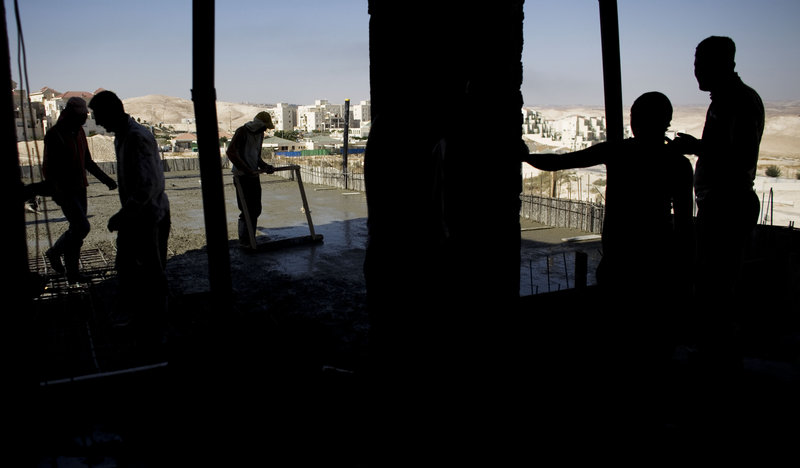JERUSALEM – Washington’s new proposal for reviving Mideast talks, presented Sunday to Israel’s Cabinet, rests on the bold expectation that Israelis and Palestinians will be able to sketch a border between them in three months. That’s the period the plan sets aside for a one-time extension of a ban on new construction in West Bank settlements.
The proposal was worked out in a seven-hour meeting last week in New York between Prime Minister Benjamin Netanyahu and Secretary of State Hillary Rodham Clinton. U.S.officials said Netanyahu told the administration that he supports the plan and will try to win approval from his Cabinet.
But 90 days seems to be little time to achieve what Israeli and Palestinian negotiators have failed to do in nearly two decades of intermittent talks, particularly since the current gaps between Netanyahu and Palestinian President Mahmoud Abbas are much wider than those in previous rounds.
The “borders first” approach could help defuse the dispute over Israeli settlement expansion on war-won land, which derailed negotiations just three weeks after they were launched in early September.
A border deal, even in rough outlines, could delineate which areas Israel could expect to keep in a final peace deal and where it would thus be free to keep building homes for Jews.
But it’s a risky strategy. The Palestinians have said they will not negotiate without a settlement curb. If three months of talks end without real progress on borders and there’s no prospect of extending the freeze, U.S. mediation would appear in grave jeopardy.
Yet the Obama administration believes that enough progress can be made on borders to keep the Palestinians invested in the talks, even if no final border deal is reached in three months.
Under the U.S. plan, Netanyahu would agree to a 90-day ban on housing starts in West Bank settlements, but not in east Jerusalem.
Obama praised Netanyahu for considering another slowdown. “I commend Prime Minister Netanyahu for taking, I think, a very constructive step,” he said. “It’s not easy for him to do, but I think it’s a signal that he is serious,” he told reporters on his plane heading home to Washington from Asia.
Copy the Story Link
Send questions/comments to the editors.



Success. Please wait for the page to reload. If the page does not reload within 5 seconds, please refresh the page.
Enter your email and password to access comments.
Hi, to comment on stories you must . This profile is in addition to your subscription and website login.
Already have a commenting profile? .
Invalid username/password.
Please check your email to confirm and complete your registration.
Only subscribers are eligible to post comments. Please subscribe or login first for digital access. Here’s why.
Use the form below to reset your password. When you've submitted your account email, we will send an email with a reset code.